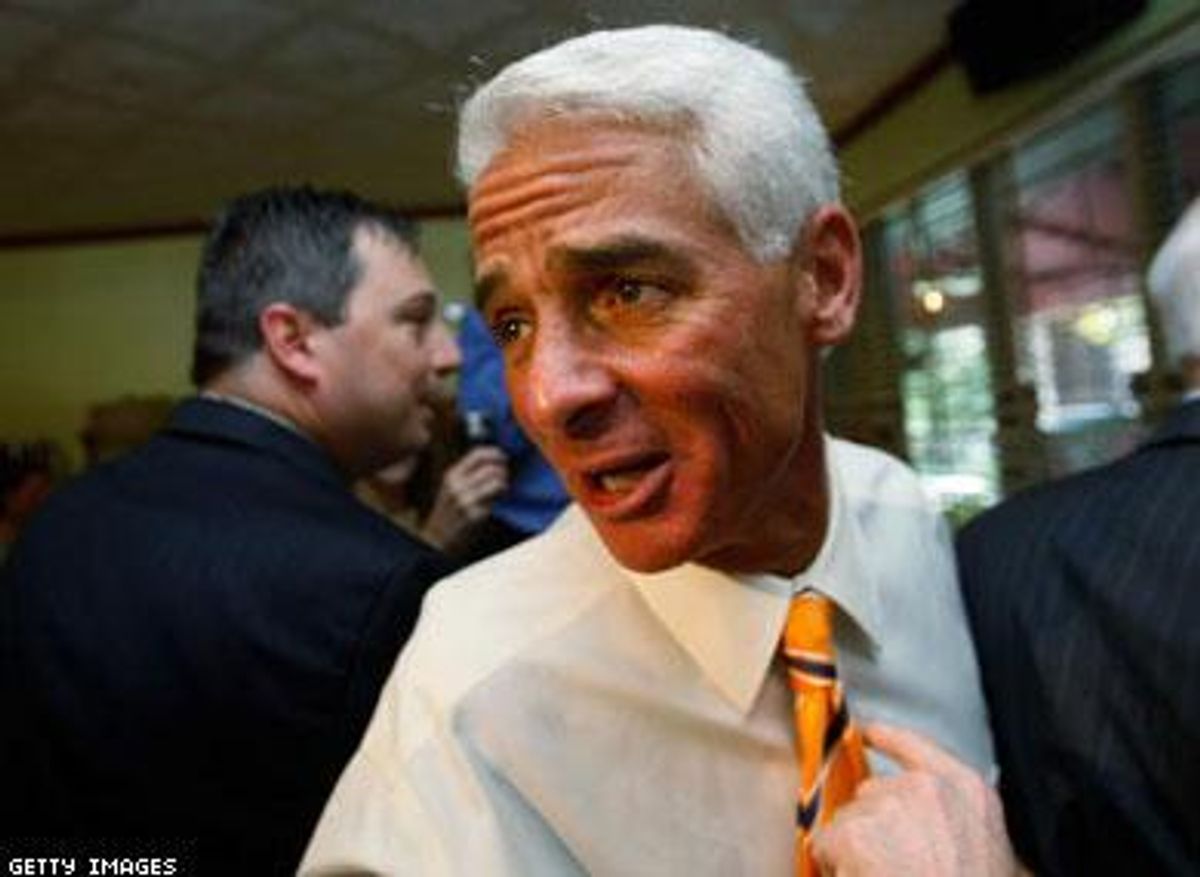
Proper manners say outing is a violation of a person's privacy and not to do it. But when it comes to antigay politicians who lead double lives, Emily Post might make an exception.
May 16 2009 12:00 AM EST
November 17 2015 5:28 AM EST
By continuing to use our site, you agree to our Private Policy and Terms of Use.

Proper manners say outing is a violation of a person's privacy and not to do it. But when it comes to antigay politicians who lead double lives, Emily Post might make an exception.
Many folks laugh when I tell them I've written a manners and etiquette book, usually thinking it's simply about stationery and place settings or that it's a tome for snobs or what's left of the idle rich. Hardly. In fact, the controversial new documentary Outrage, which outs a closet of elected officials, raises the perfect manners conundrum: Is naming names of closeted politicians good or bad manners and what does that answer say about our contemporary values and mores?
In recent decades, outing -- the practice of revealing another person's sexual orientation -- has been rightfully frowned upon by most in the LGBT community because to come out had been such an intensely personal issue with potentially catastrophic consequences. In The Essential Book of Gay Manners & Etiquette , which I wrote in the mid 1990s, my thinking on the "manners of outing" clearly reflected that other time - a time before Ellen , Will & Grace , and the three states where same-sex marriage is currently legal (and the three more where it soon will be).
"Outing a colleague -- intentionally or unintentionally -- is a violation of that person's privacy. Don't do it!"
Good manners, in this regard, clearly sided on the side of privacy.
But times change and so do manners. These days, when being LGBT seems practically commonplace (at least in many parts of the country) and where a majority of people under 40 are in favor of marriage equality, how we understand outing is also morphing. Kirby Dick's film Outrage certainly leaves no prisoners as he squarely takes aim at lawmakers who are believed to be closeted gays. The film's trailer notes that these politicians lead "secret double lives" because they maintain clandestine sexual liaisons with men, but also fight against same-sex marriage, vote against AIDS research, and denounce adoptions by LGBT parents. And, indeed, names are named.
Now, when we look at politicians who lead double lives, and whose actions hurt the LGBT community, how can proper manners side with hypocrisy and vilification even when the right to privacy is still an issue? The late Emily Post, the metaphoric mother of manners in this country, would, I believe, come to the same understanding. In the 1928 edition of Etiquette she trounced hypocrites: "[I]t is not the people who make small technical mistakes or even blunders who are barred from the paths of good society, but those of sham and pretense whose veneered vulgarity at every step tramples the flowers in the gardens of cultivationaEUR|"
The secret liaisons depicted in Outrage are the definition of hypocrisy. Of the dozens of posts about the film on my Huffington Post blog, the large majority favored outing the politicians. Wrote one young man: "If someone is homosexual and speaking [out] or voting against gay rights, they should be 'outed' to let voters decide if their hypocrisy influences their ability to govern. Same rules as if the ones who preach family values and [cheat] on their wife, or vote pro-life and send their daughter to an abortion clinic."
Take the case of the senator from Idaho, Larry Craig. Two years ago the married Republican lawmaker was arrested and pled guilty to "lewd conduct" in an airport sex sting involving a male police officer. In a subsequent investigation by the Idaho Statesman , three men alleged that Craig had initiated sex with them, including one who said he had oral sex with the senator in Washington's Union Station. Perhaps Craig's right to privacy might have greater currency had he not publicly supported the Federal Marriage Amendment, which would have constitutionally prohibited same-sex couples from marrying in the United States. He has also voted against LGBT-inclusive hate-crimes and employment nondiscrimination legislation . Senator, you just can't have it both ways.
Back in her day, Mrs. Post added one final comment about why etiquette and manners matter to us all, again striking just the right note: "The structure of etiquette is comparable to that of a house, of which the foundation is ethics and the rest good taste, correct speech, quiet, unassuming behavior, and a proper pride of dignity." While we may get cross-eyed over which fork goes where, we should try not to forget that the best manners should rest on our highest ethics, and the valuing of the common good, known as society, over the individual.
Viral post saying Republicans 'have two daddies now' has MAGA hot and bothered